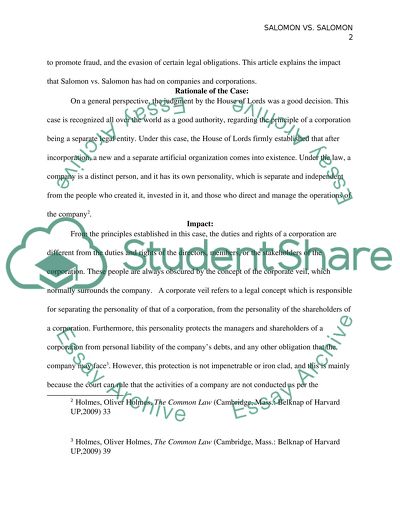Cite this document
(“The rule in Salomon v Salomon & Co [1897] AC 22 has been described as Assignment - 1”, n.d.)
Retrieved from https://studentshare.org/law/1664305-the-rule-in-salomon-v-salomon-co-1897-ac-22-has-been-described-as-one-of-the-corner-stones-of-english-company-law-discuss-the-rationale-and-impact-of-the-decision-on-company-law
Retrieved from https://studentshare.org/law/1664305-the-rule-in-salomon-v-salomon-co-1897-ac-22-has-been-described-as-one-of-the-corner-stones-of-english-company-law-discuss-the-rationale-and-impact-of-the-decision-on-company-law
(The Rule in Salomon V Salomon & Co [1897] AC 22 Has Been Described As Assignment - 1)
https://studentshare.org/law/1664305-the-rule-in-salomon-v-salomon-co-1897-ac-22-has-been-described-as-one-of-the-corner-stones-of-english-company-law-discuss-the-rationale-and-impact-of-the-decision-on-company-law.
https://studentshare.org/law/1664305-the-rule-in-salomon-v-salomon-co-1897-ac-22-has-been-described-as-one-of-the-corner-stones-of-english-company-law-discuss-the-rationale-and-impact-of-the-decision-on-company-law.
“The Rule in Salomon V Salomon & Co [1897] AC 22 Has Been Described As Assignment - 1”, n.d. https://studentshare.org/law/1664305-the-rule-in-salomon-v-salomon-co-1897-ac-22-has-been-described-as-one-of-the-corner-stones-of-english-company-law-discuss-the-rationale-and-impact-of-the-decision-on-company-law.


